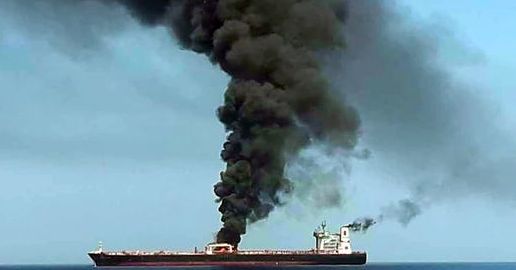SENAY EMMANUEL WRITES — Last month, Arab leaders held an emergency summit in Mecca to address threats presented by Iran, following attacks on oil tankers off the coast of the United Arab Emirates. While Saudi Arabia described the attacks as “naked aggression,” Iran denied having anything to do with them.
One attending head of government at the emergency meeting got a lot of attention – Qatari PM Sheikh Abdullah bin Nasser Al Thani. Despite the existence of a large-scale economic and political blockade on Qatar by many Arab countries, Saudi Arabia extended an invitation so as to highlight the rhetoric of both Saudi Arabia and UAE stressing the importance of a unified Arab and Gulf stance against Iran.
Mission not accomplished. Following the emergency Gulf meeting, there was no indication that the Gulf states had drawn closer. One point of disagreement between Qatar and the other Gulf states: the concluding statements of the GCC and Arab League (AL); two days later, the Qatari government asserted that the GCC/AL stance was too harsh against Iran.
So despite the desire for unity, Saudi Arabia and UAE failed to establish a united front in countering Iranian influence. Diverse geopolitical forces at play essentially prevent these GCC nations from agreeing on how to address the current regional political situation. Additionally, the Gulf States’ total blockade of Qatar suggests to the rest of the world that the Saudis and Emiratis are in fact not serious about incorporating Qatar into their decision-making.
Then again, the problem also lies in Qatar’s middle-of-the-road stance, as marked by its desire to: maintain relations with Iran, improve relations with the GCC and at the same time work with other allies, including the United States. This is incompatible with the Saudi and UAE position condemning Iran. Recent attacks on oil tankers in the Gulf of Oman, plus the attack on an airport in Saudi Arabia— allegedly by Iran and the Iranian backed Houthi rebels, respectively—make Qatar’s moderating stance unjustifiable to the other states, and highly unlikely to lead to cooperation.
In the end, it seems, Iran might well get what it wants: A fractured Gulf over which it can exert its influence in the region.
Enter into the confused void the United States?

